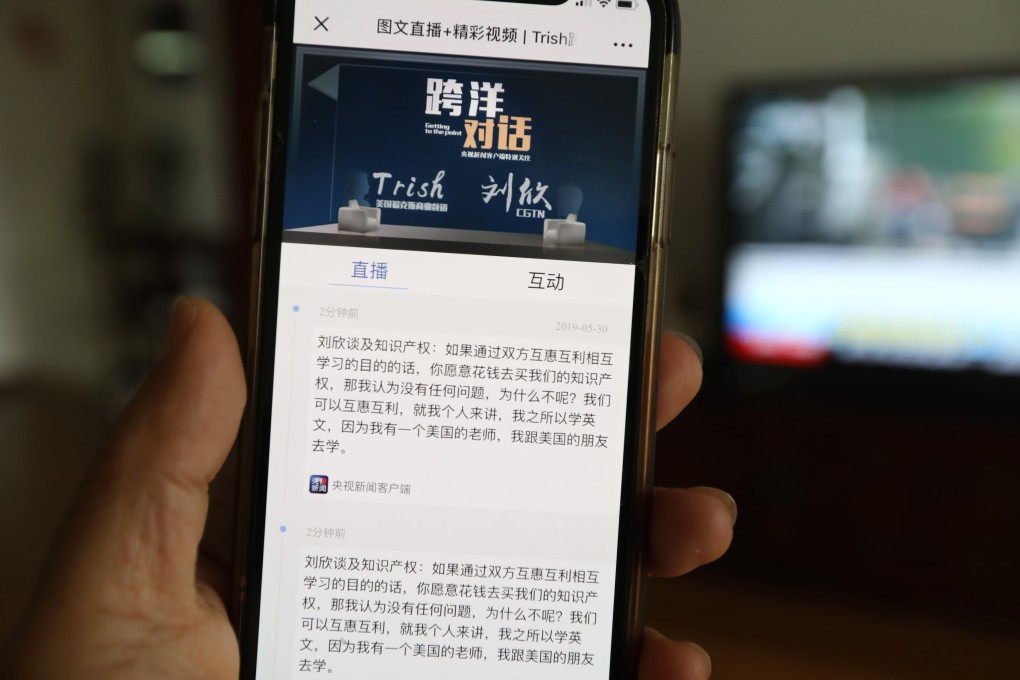US-China TV debate’s lack of flash panned on Chinese social media
- Online reaction finds Fox’s Trish Regan and CGTN’s Liu Xin clash too mild, too short, and too rude

Disappointed commenters flooded China’s social media on Thursday with complaints that the on-air debate between an American and a Chinese news anchor on the trade war was too “mild” and too “short” – and that the “rude” Fox Business host Trish Regan kept interrupting CGTN’s Liu Xin.
The debate between the anchors – both TV personalities in their home countries – was broadcast live on the American channel Fox Business on Wednesday night US time after a week of sparring between the duo on air and on Twitter.
Both were keen to defend their own administration’s stance, with China and the US locked in an escalating trade war – official talks stalled after a deal fell through unexpectedly earlier this month.
While details of the official discussions have been largely kept from the Chinese public, the live exchange was hotly anticipated in China, where it is rare to see local journalists taking part in foreign media programmes because of the country’s strict censorship and media controls.

Liu, one of the highest profile anchors at English language state broadcaster China Global Television Network (CGTN), was therefore expected to give a rare glimpse into the latest view from Beijing on its stance in the ongoing trade conflict.